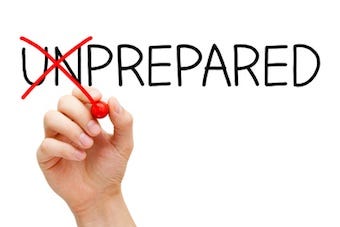Jul 8, 2018 | Erika Yi
We've all been there, the mixed feelings of hope and anxiety when venturing into a new life transition. You've got the skills, you've got the drive, you're ready to start, you look around and ask yourself, now what?
The landscape of user experience can be extremely complex to navigate for someone who is new in the industry. People coming into the UX field from all kinds of channels, each with a unique story. For a new UXer, finding a mentor, or mentors, can be of immense help to jump start one's UX career.

Mentors can be incredibly valuable on any career path
Do I really need a mentor?
Before launching a search for a perfect mentor, you might want to take a moment to consider whether or not you need a mentor. A mentor is someone who is experienced in the field and willing to give you advice to move ahead. Mentors can provide valuable advice on best industry practice, help you to build your confidence as a young professional, and give you insights on your new ideas and your plans to move forward. If you're in need for advice and don't know how to get some, chances are you need some mentorship.
What can a mentor offer?
Mentors can help your career development in several ways, here are some of the ways their guidance is important:
Bridge the knowledge gap: mentors can help you identify what you're missing in your skill sets and let you know what gaps you need to fill to make you a well-rounded UX professional.
Find community: mentors can introduce you to the communities and expand your professional network. One of the essential functions of networking is to get to know more people, and tapping into the professional networks of your mentors allows you to expand yours. Joining communities through their introduction reduces the initial awkwardness of networking with strangers. You will also establish your credibility through your mentors' introductions.
Provide social support: mentors are not necessarily professionals from your field. In addition to informational support, good mentors can provide the emotional support you need during the frustrating job search process and make sure you're anchored and calm.
Generate referrals: if you have great relationship with your mentors, they will not hesitate to be your referrals to your next big job opportunity.
Provide job opportunities: although the goal of finding mentors should never be asking for jobs, mentors can in fact direct job opportunities to you, if you've proven yourself to be a competent and driven professional.

The many benefits of mentorship
How to find mentors, the preparation
Search your existing network: the biggest mistake in networking is not to take action at all. So send a message out to your friends, family, colleagues, and acquaintances, asking if they know the kind of people you're look for. You will be surprised what kinds of people they might know!
Search for people you would like to contact: cold calling is dreadful, especially for the introverts out there, but social networks like LinkedIn made it much easier to search for networking opportunities. With the information you can gather on the potential contacts, you can prepare for the dreaded cold call.
Draft messages to potential contacts: we're not suggesting use a blanket message template to reach out to absolutely everyone. However, drafting some network scripts before hand can be immensely helpful to get you started.
Figure out best way of communication: think beforehand what kind of meeting you want to have with your potential mentors, you might have to drive to their location for a quick cup of coffee, or you might need to set up an online video call to chat with them remotely. Preparing several possible means of communication gives your mentors choices, which improves your chance of connecting with them.
Prepare a list of questions: of course, you want conversation to flow naturally, preparing the questions beforehand can actually improve the quality of conversation. You will be able to demonstrate your value as a mentee by asking truly insightful questions and showing a genuine interest in the other person.
Mental preparation: be optimistic about your cold call attempts, but also prepare for getting no responses. Remember your value as a aspiring young UX professional. The organizations are always looking for highly talented individuals to join the teams, you have as much to offer to the your mentors as you can learn from them.

Preparation pays off, do it!
How to find mentors, the action steps
Research your potential contact: so you narrowed your search for mentors down to several potential contacts. Now you can spend more time in learning more about their career path and their accomplishments. Learning about your potential mentors further helps you to determine if they will be a match for you, also provides additional information to establish a more personal connection with them.
Make a personalized initiate contact message: the odds are that personalized messages will be more likely to get a response. Here are some of the things you can add to your initial contact script:
- Talk about that person's interests and hobbies.
- Complement their achievements, published projects, and promotions.
- Emphasize your common ground, i.e. you went to the same events or belong to the same organizations; you share a common research or design interests with them.
- Do not ask for a job in the first message, simply ask to meet or chat.
How to find mentors, the follow up steps
What if I receive no response?
Don't take it personally. Perhaps the person was too busy, or travelling outside the country, or just drowning in unread messages, in this case, just follow up after a few days. If you still get no response, maybe it's an indicator that this individual is not a good fit to be your mentor, and it is still a good thing to know. Go back to the preparation stage, rinse and repeat.
They responded to my message, time to set up a meeting!
Congratulations! This is the beginning of building a meaningful relationship with a mentor. The purpose of this initial meeting is for you to gain understanding of your potential mentor. Follow up with the person with specific meeting details such as date, time and location. Be considerate and respectful of his/her time, you'll want to have a tailored agenda in mind, but don't sweat it if the meeting can't cover all your questions. You can always ask them later if your first meeting is a success. Keep the conversation open and on-going. Send them a thank you note after the meeting and mention that you'd love to meet them again soon. Meanwhile, loop them in with your progress in professional development, and let them know how much their advice helped you! Keep your mentor in the loop on your growth
How to be a good mentee, the dos and don'ts
Mentorship is a voluntary process, so both parties need to put in some effort to make this relationship work. As a mentee, the worst thing you can do is not listen, or not act on their advice. Although bare in mind that not all the advice and guidance are suitable for you personally, you can still acknowledge the mentor's effort in helping you. Remember, cultivating a meaningful mentorship with someone is a mutually beneficial, on-going, organic process, these steps can help you start your journey of finding mentors, but it is up to you to keep the relationship moving forward.

